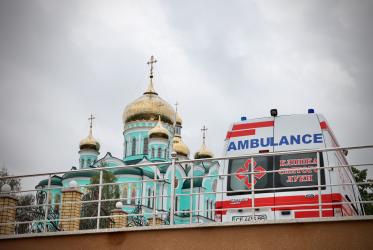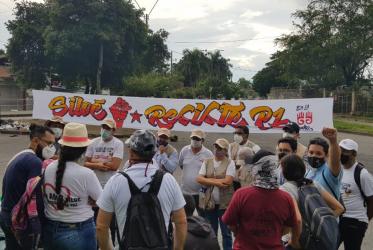Displaying 1 - 20 of 24
Répondre aux besoins humanitaires en Ukraine
27 September 2022
Ukraine: Responding to humanitarian need
08 September 2022
Un monastère ukrainien répond aux conséquences de la guerre
11 August 2022
Monastery in Ukraine responds to the consequences of war
09 August 2022












